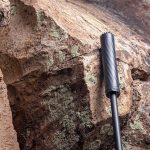Unifi Inc. (NYSE:UFI), which supplies recycled polyester yarns to many outdoor and athletic apparel brands, reported higher profits on lower sales for the fiscal first quarter ended September 27 as it passed along lower raw material costs and combatted a surge of cheaper imports from Asia.
The Greensboro, NC manufacturer said lower average pricing accounted for $5 to $6 million of a $13.4 million decline in revenue during the quarter, when sales declined 7.6 percent to $162.2 million. The balance of the decline was attributed to the company’s Brazilian subsidiary.
Unifi’s raw material costs declined 10 cents per pound, or by approximately 2 percent, during the quarter from the previous quarter. They ended the quarter below year earlier levels when oil was selling for $97 per barrel, or twice its current price.
Excluding the company’s Brazilian subsidiary, sales volumes of polyester yarns increased slightly from the fiscal first quarter of 2014.
Low cost imports, scheduled factory closings and higher depreciation expenses dragged down gross margins at the company’s polyester segment, which is spending tens of millions of dollars to expand its PET bottle recycling capabilities in North Carolina to feed Western Hemisphere demand for Repreve yarns.
Improved results at the company’s Nylon and International segments, however, enabled Unifi to grow its consolidated gross margin 130 basis points to 12.9 percent. Operating income grew by more than $2.0 million, or 27.2 percent and EBITDA by nearly $1 million or 10 percent. Improved margins at the company's subsidiary in China, which has been taking on Repreve programs that were sourced from the U.S., also contributed to the growth in operating income.
Under agreements reached earlier this year, a licensee will begin manufacturing Repreve in Turkey and a Taiwanese company will begin distributing Repreve throughout Asia. The agreements are expected to shorten lead times and broaden sourcing options for Unifi customers looking to shift production out of China in search of lower labor rates or to take advantage of the Trans Pacific Partnership (TPP), which will eliminate or phase out U.S. duties on textile and apparel products from 11 countries if it is ratified by Congress.
On Thursday, Unifi Chairman and CEO Bill Jasper said it appears the TPP agreement contains key provision sought by the U.S. textile industry, including a yarn-forward rule with limited exceptions, no generic preference levels and extended-duty phase-outs of 10 to 12 years for sensitive products made in the Western Hemisphere.
The final text of the trade agreement, which was reached October 5 after nearly six years of negotiations by the Obama Administration, should become available over the next few weeks for a more thorough review. Congress could vote to ratify or reject the agreement as early as February.
“While retailers and importers have argued that the benefits under the agreement are too small for them, initial briefings have confirmed that it reflects the key objectives endorsed by the U.S. textile industry,” Jasper said. “We are encouraged that it appears the TPP will not slow down growth in the CAFTA [Central American Free Trade Agreement] region and may provide some opportunities for us to invest in the TPP region.”















